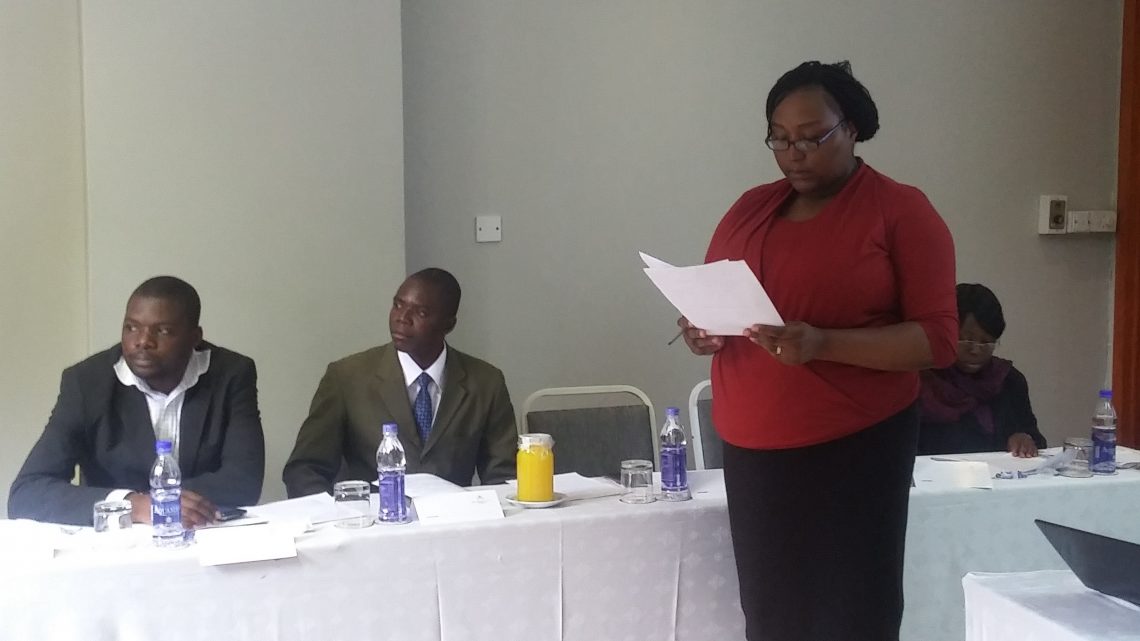By Byron Mutingwende
Girls and women with mental disability are highly vulnerable to sexual violence and encounter enormous obstacles which impede easy access to post gender based violence services such as health, justice, counselling and shelter. As a result, stakeholders called for standardising and decentralisation of psychiatric assessment reports.
Nobuhle Moyo, the Project Officer (Access to Justice for Girls and Women with Disabilities) of Leonard Cheshire Disability Zimbabwe (LCDZ) said worldwide, women and girls were subjected to various forms of violence and Zimbabwe was not an exception.
Moyo said research has shown that girls and women with disability are highly vulnerable to violence, especially sexual violence.
“Furthermore they encounter enormous obstacles which impede easy access to post gender based violence services such as health, justice, counselling and shelter. In a bid to create a safe environment for girls and women with disabilities (GWWD) from gender based violence and increasing their participation in the justice system LCDZ supported by United Nations Trust Fund to End Violence Against Women is implementing a project called Access to justice for GWWD,” Moyo said.
LCDZ offers disability expert services like sign language interpretation, logistical support like transport, accommodation and food as well as psycho-social support like counselling and home visits to mentally disabled victims of sexual abuse.
In order to raise awareness, it also holds dialogue with community leaders, GWWD and caregivers. LCDZ offers trainings to sensitise service providers on disability, GWWD on GBV, reporting procedures and relevant laws.
Dr. Munyaradzi Madhombiro, a Harare-based psychiatrist said there is a plethora of challenges faced in assessing mentally challenged victims of sexual abuse.
“There are usually delays in recognition of abuse due to societal, community and family factors. In one instance, a certain man had three children with his mentally challenged daughter. The matter was kept secret to safeguard family reputation. On the other hand there are delays in presentation of the victims resulting in failure to provide termination of pregnancy where termination is warranted. A pregnancy can be terminated up to 20 weeks. There is also an increasing number of victims brought to the hospitals and a lack of human resources in carrying out the assessments,” Dr. Madhombiro said.
He also cited the lack of collateral history resulting in inaccurate reports and cases being lost in courts and difficulties in convictions. The lack of communication between the prosecution and the forensic psychiatrists also leads to the lack of necessary details in the reports that end up being unhelpful to the courts. Some psychiatrists confuse their role and sometimes end up taking the court’s role.
As a way forward, Dr. Madhombiro said the assessment report forms used need to be standardised and expanded to carry information that is helpful to the courts.
“Psychiatrists should consider the use of rating scales in assessing the degree of mental disability. There should be validation of intelligence assessment tools and adaptation to include local language. I also advocate for regular meetings between the prosecution and the psychiatrist. The courts should be capacitated to differentiate between intellectual impairment and mental disorders to help the psychiatrists with their reports.”
Dr. Chido Rwafa, a psychiatrist with Parirenyatwa Anex Psychiatrist Hospital said psychiatrists are often called upon to examine patients and provide reports to the courts to aid in the administration of Justice.
“To date the procedure of these examinations has not been thoroughly standardised and the National Prosecuting Authority has expressed concern over this. From the LCDZ meeting yesterday, it became clear to me that the reports we have been producing have not been clearly answering the questions being asked of us by the court. It is my opinion that our thought process and conclusions though clear to us were not being well understood by the prosecuting authorities. There is need for a clearer format of our forensic psychiatric reports to better communicate our opinions to the courts,” Dr. Rwafa said.
The workshop allowed stakeholders to come up with a draft standardised psychiatric evaluation format that will then be presented to the rest of the psychiatrists in a consultative process. Once consensus has been reached the new form can then be disseminated to all psychiatric units for use by psychiatrists and other mental health cadres.






